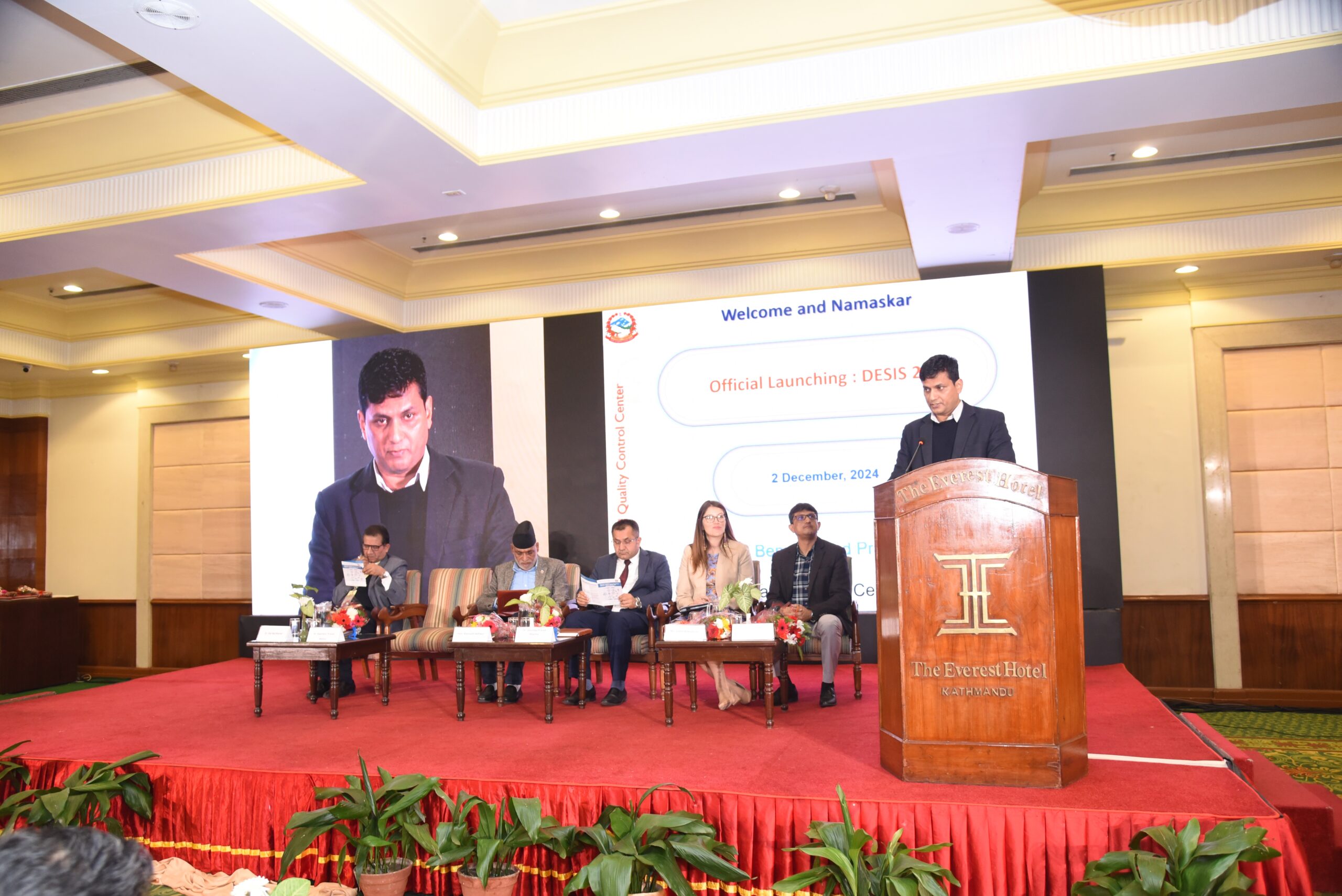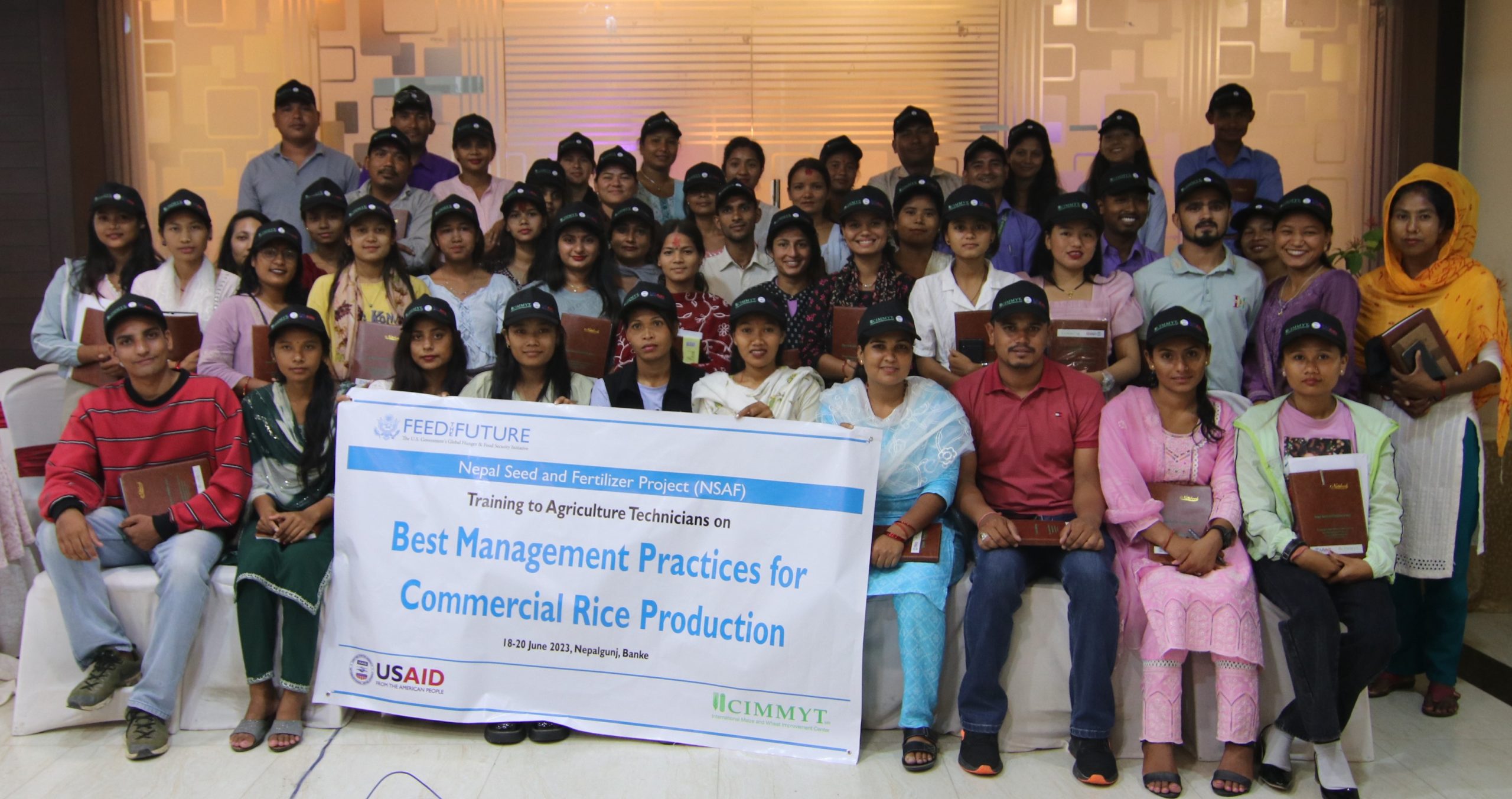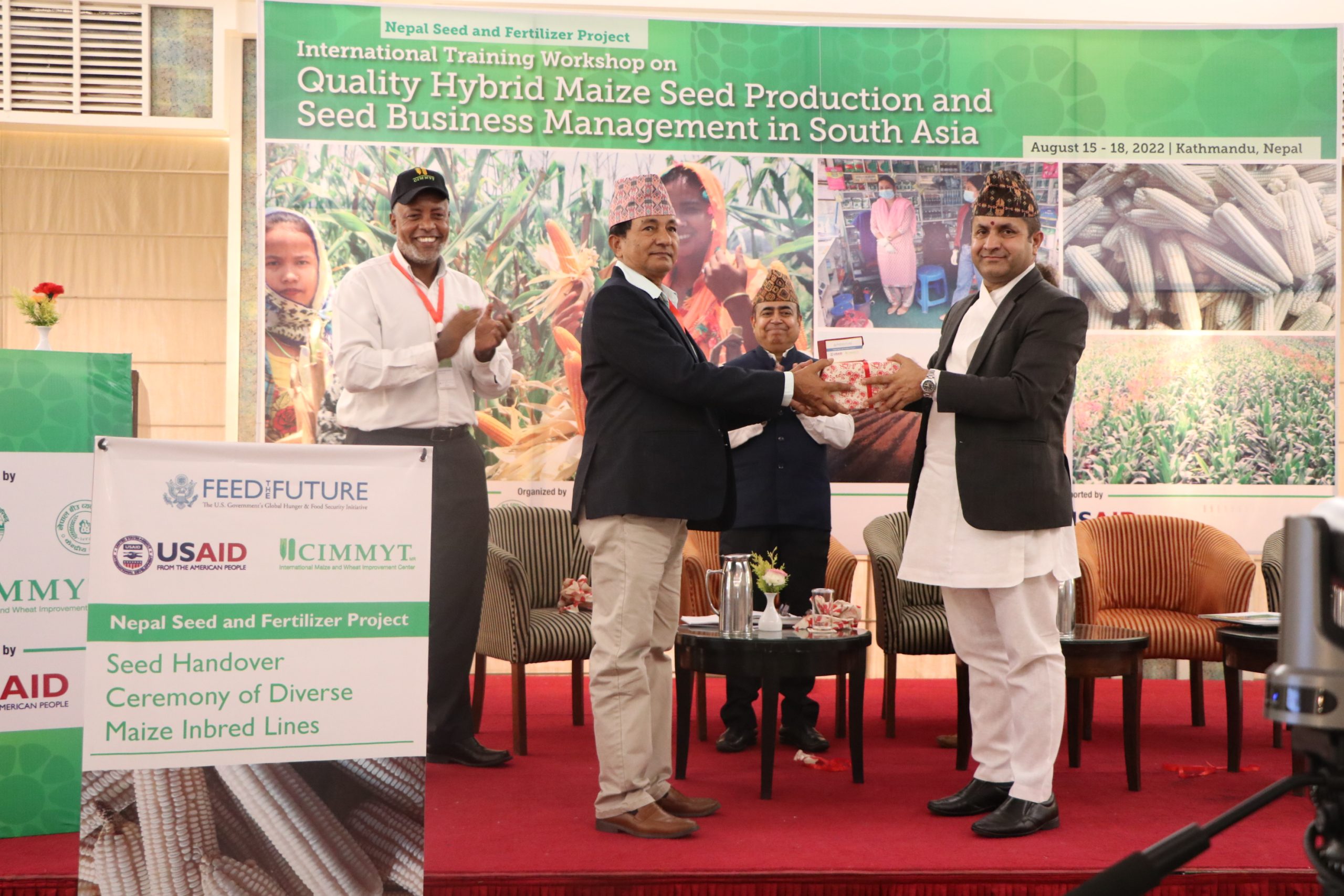“Over 75% of my customers are women. The quality of the seed, attractive packaging, competitive prices, and reasonable profit margins are what keeps my business growing,” says Mira DC, who has been running her agrovet shop in Ghorahi, Dang District, for more than 15 years. From selling seeds and veterinary medicines to small farm tools, Mira’s shop has become a trusted source for local farmers. She attributes her success to farm visits, quality inputs, and advisory services—elements that have built her reputation and customer loyalty.

To strengthen Nepal’s seed market system and improve smallholders’ access to quality seeds, CIMMYT organized a series of agrovet capacity development trainings across five provinces between late 2024 and 2025. Conducted under the CGIAR Breeding 4 Tomorrow Initiative, and in collaboration with provincial Agriculture Knowledge Centers (AKCs) and provincial seed testing laboratories, the training programs enhanced agrovets’ knowledge of new variety releases, seed quality standards, ethical business practices, and national seed regulations.
“Agrovets are the linchpin of Nepal’s seed and input system,” said AbduRahman Beshir, CIMMYT’s Seed Systems Lead for Asia. “When they are informed and empowered, farmers gain timely access to improved, climate-resilient varieties that drive productivity and resilience.
Agrovets: Nepal’s Frontline Input Providers
Nepal is home to over 4,000 agrovets—private agricultural input suppliers who sell seeds, fertilizers, pesticides, veterinary medicines, and small equipment. For most farmers, agrovets are the first and often only point of contact for agricultural inputs and advice, making them the critical last-mile link between seed suppliers and farming communities.
However, many agrovets have limited access to updated technical knowledge on new varieties, seed quality assurance, and seed regulations. This knowledge gap restricts farmers’ access to high-quality seeds and reliable information. CIMMYT’s initiative seeks to bridge this gap and promote a more inclusive, efficient, and responsive seed system that reaches even the most remote communities.
Training Across Provinces
More than 300 agrovet owners participated in the training sessions across Sudurpashchim, Karnali, Lumbini, and Bagmati provinces, covering districts such as Kailali, Kanchanpur, Surkhet, Dailekh, Dang, Rupandehi, Chitwan, and Makwanpur.

Key training topics included:
- Awareness of newly released open-pollinated (OP) and hybrid varieties
- Seed quality assurance and safe handling practices
- Seed rules, certification, and variety release procedures
- Ethical business practices and agro-advisory services
- Strategies for building inclusive and resilient seed system
Understanding Nepal’s Agrovet Landscape
A survey conducted during the training provided insights into Nepal’s agrovet business dynamics. The sector remains male-dominated, with only 4.2% female and 9.8% youth participants among the 300 respondents. Most of the agrovets owners have a middle-level education, and only 17.9% have been in business for over 15 years, signaling an emerging, dynamic sector.
While most agrovets sell both OP and hybrid seeds, nearly 80% handle less than 10 tons annually, primarily cereals and vegetables. Domestic seeds are favored due to affordability and local adaptation; however, the limited supply of high-quality local seeds remains a key constraint. About 40.6% of agrovets also sell small quantities of imported seeds to meet local demand.
Challenges and Market Dynamics
Agrovets reported mixed business trends. Some have faced declining sales due to rural migration, open-border competition, and inconsistent domestic seed quality. Others experienced business growth driven by rising demand for improved varieties, increased farmer awareness, and access to technical training.
Common farmer concerns included low germination rates, varietal off-types, and inconsistent seed performance. Agrovets urged seed companies to improve packaging, quality control, and post-sale advisory services to build stronger farmer trust and loyalty.

Strengthening Linkages with Seed Companies
The survey revealed that roughly 30% of agrovets meet seed company representatives twice a year, while 20% reported no engagement at all. Local agrovets, seed companies, and radio or TV programs remain farmers’ main sources of information on new varieties.
When asked about maize seed preferences, 70% of agrovets cited high grain yield, early maturity, and disease or pest tolerance as the top three most desirable traits among farmers.

Although many agrovets have received training from AKCs, District Agriculture Offices, or the Seed Quality Control Center (SQCC), some continue to sell unregistered seeds due to limited awareness of regulations. Only 44% of respondents were aware of Nepal’s new seed regulation, highlighting the ongoing need for continued capacity-building and outreach.
Several agrovets also reported weak coordination with seed companies due to intermediaries and limited participation in field days or demonstration events. Strengthening direct linkages between seed companies and retail-level agrovets could accelerate technology transfer and improve farmers’ access to high-performing varieties.
Building an Inclusive Future for Seed Systems
The training underscored that empowering agrovets is critical to bridging the gap between formal seed systems and smallholder farmers. Strengthening their technical and business capacity enhances seed access, farmer confidence, and market competitiveness, particularly benefiting women, youth, and marginalized communities.
“Investing in agrovet capacity means investing in farmers’ future,” said Santosh Pathak, representative of AKC, Banke District, Lumbini Province. “A knowledgeable agrovet can transform local seed systems by making better seeds and information available where they’re needed most.”
Through initiatives like this, CIMMYT and partners are fostering a more inclusive, efficient, and farmer-centered seed system—ensuring that every seed sold at a local agrovet contributes to stronger livelihoods and more resilient farming communities across Nepal and beyond.
About the Project
This activity was conducted under the CGIAR Breeding 4 Tomorrow initiatives within the Inclusive Delivery Area of Work, which works to make quality seeds of improved varieties accessible to smallholder farmers through equitable and efficient seed systems.

 Innovations
Innovations 
